
Hard water is a common issue for homeowners in Arizona and across the Southwest. It can cause everything from itchy skin and cloudy dishes to shortened appliance lifespans. But how do you know if your home is affected? In this article, we’ll explain how to tell if you have hard water and how to confirm it using a few simple tests.
What Is Considered Hard Water?
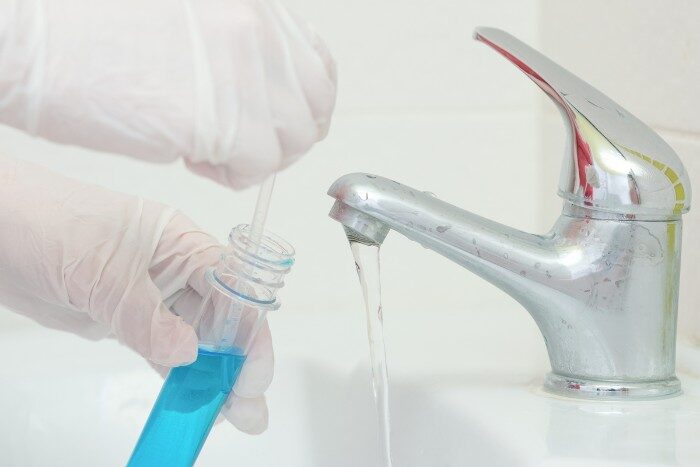
Hard water is defined by the amount of dissolved calcium and magnesium minerals it contains. This mineral content is measured in grains per gallon (GPG) or parts per million (PPM). Here’s a quick reference:
- 0–3 GPG: Soft water
- 4–7 GPG: Moderately hard
- 8–10 GPG: Hard
- 11+ GPG: Very hard
In cities like Phoenix, hard water often measures 12–22 GPG, placing it squarely in the “very hard” category.
How to Tell If You Have Hard Water: 4 Easy Signs
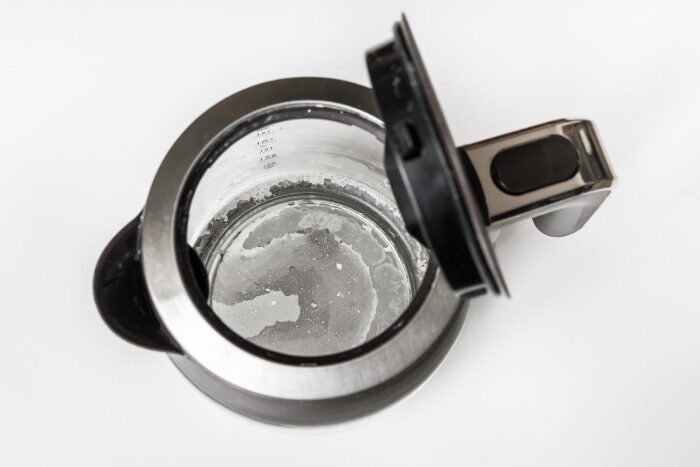
Wondering how to tell if you have hard water? Here are four common indicators you can look for in your home:
- Spotty Dishes and Glassware – After running the dishwasher, do your glasses look cloudy or have white spots? That’s mineral residue left behind by hard water. Even with a rinse aid, these minerals can still cling to surfaces.
- Soap Scum on Showers and Fixtures – Hard water reacts with soap to form a sticky film known as soap scum. If you notice chalky buildup on faucets, showerheads, or tiles, your water is likely high in calcium and magnesium.
- Dry Skin and Dull Hair – Hard water strips your skin and hair of natural oils, leading to dryness, irritation, and even flare-ups of skin conditions like eczema or psoriasis. If your skin feels tight and your hair looks lifeless, hard water could be to blame.
- Shortened Appliance Lifespan – Minerals in hard water build up inside appliances like washing machines, dishwashers, and water heaters. Over time, this scale reduces efficiency and can cause premature failure, leading to costly repairs or replacements.
Bonus: Try the Plastic Water Bottle Test
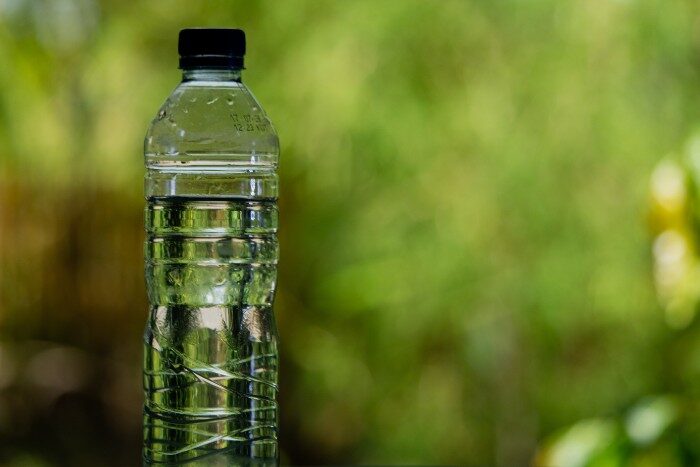
One of the easiest DIY ways to test for hard water is with a clear plastic bottle:
What You Need:
- A clean, empty 16-oz plastic bottle with a tight-fitting cap
- Tap water
- 10 drops of pure liquid soap (not detergent-based)
Steps:
1. Fill the bottle two-thirds full with tap water.
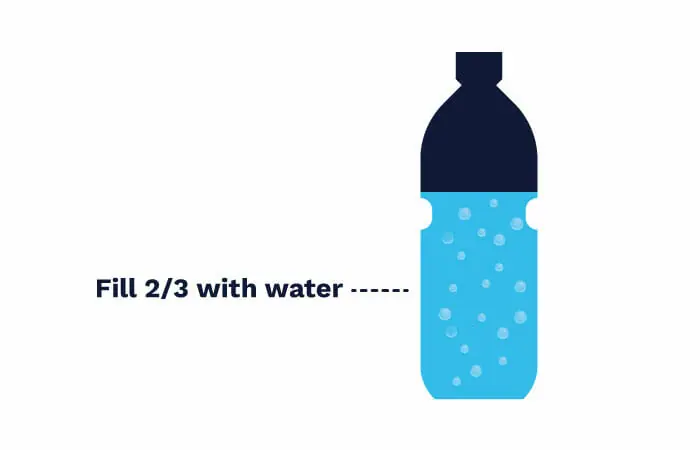
Use a see-through container like a plastic water bottle. Fill it about two-thirds full of water from your tap.
2. Add a few drops of liquid soap
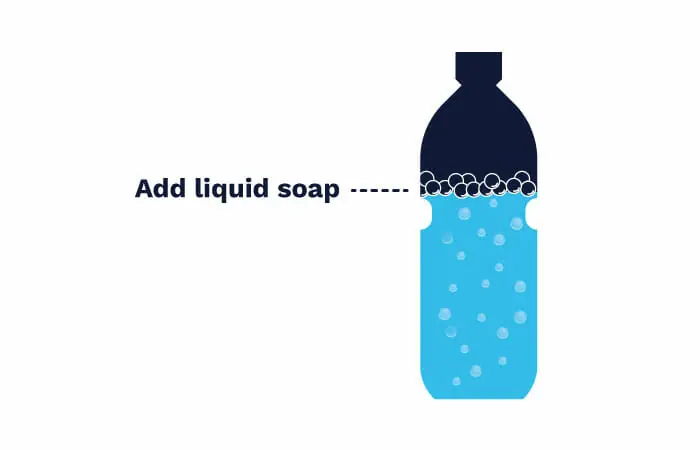
Add about 10 drops of a pure liquid soap without dyes or perfumes into the bottle of water. Avoid using soap labeled as a detergent — detergents usually have additives that will affect the test.
3. Shake the bottle vigorously for 10 seconds
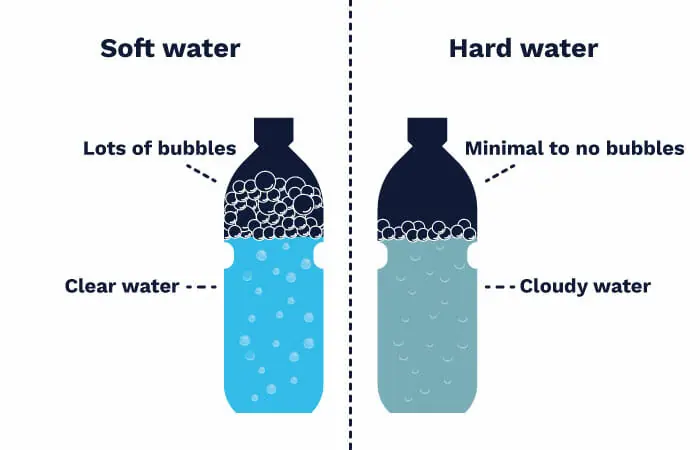
Put a cap on the container and shake it for 10 seconds to mix the soap and water.
What to Look For:
- Soft Water: Produces a rich lather and clear water.
- Hard Water: Little to no suds, and the water appears cloudy.
This test is not precise, but it gives you a quick visual clue about your water’s hardness.
What to Do If You Have Hard Water
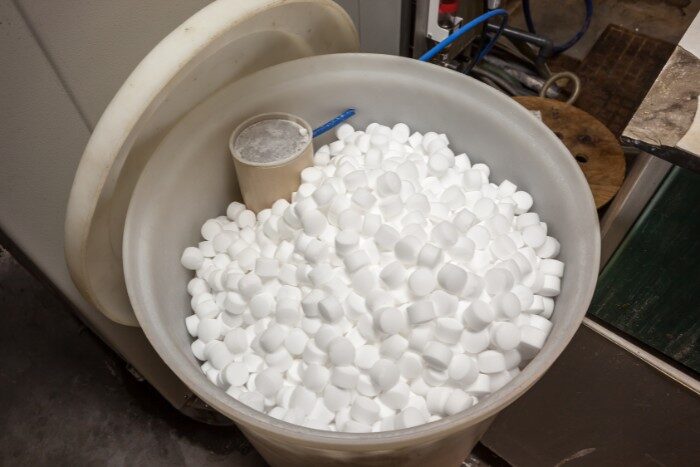
If you’re seeing one or more of these signs, chances are your home has hard water. A professional water test is the most accurate way to determine your water hardness level. Once confirmed, the best solution is to install a whole-home water softener system.
Clear Water Concepts offers:
- Custom-designed water softening and purification systems
- Expert installation from local professionals
- Systems built specifically for Arizona’s extremely hard water
Get a Free Water Hardness Assessment

Still wondering how to tell if you have hard water? Let the experts at Clear Water Concepts help. Call (480) 923-7337 or visit www.clearwaterarizona.com today to schedule your free in-home water consultation and take the guesswork out of water quality.


